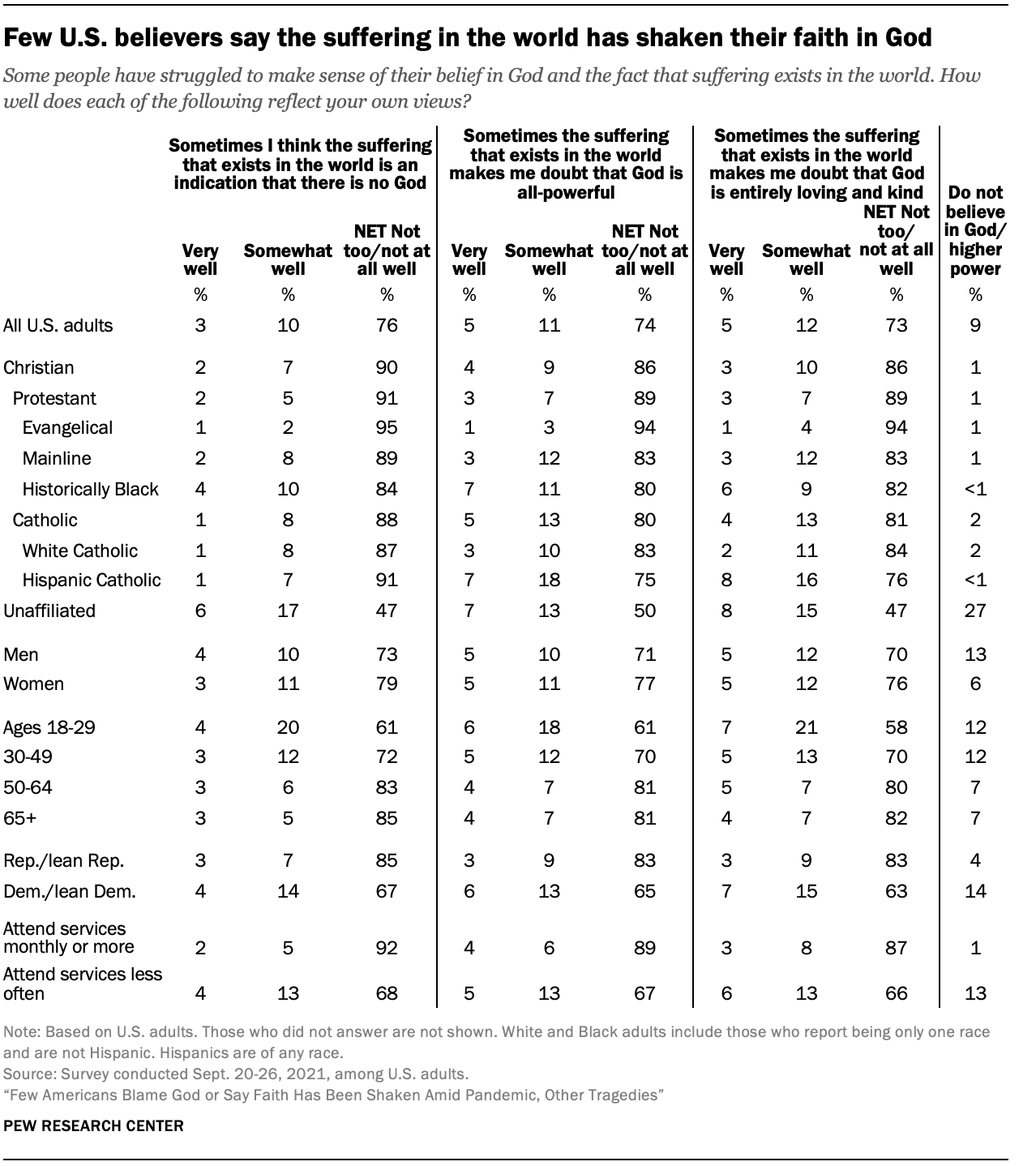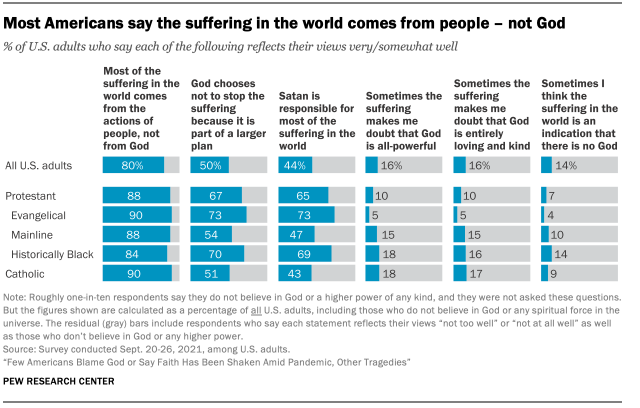Giving Thanks for Prosperity and Adversity
There’s been a lot of suffering and fear in the world the past two years, but it hasn’t shaken the faith of most Christians in the United States.
That’s the conclusion of a survey of about 6,500 U.S. adults released this week by the Pew Research Center. Only 13 percent of American Christians said either of the following statements reflected their views “very well” or “somewhat well”:
· “Sometimes the suffering that exists in the world makes me doubt that God is all-powerful.”
· “Sometimes the suffering that exists in the world makes me doubt that God is entirely loving and kind.”
As you can see in the chart below, among people who describe themselves as evangelical, only 4-5 percent affirmed those statements. And even among people who are religiously “Unaffiliated,” only 20-23% replied affirmatively.

At the same time, overwhelming majorities of Americans—80 percent of all adults and roughly 90 percent of Christians—say suffering comes primarily from people’s own actions—either individually or via societal structures.

I view both of these results as pretty good indications that Americans view people rather than God as the author of sin, and yet still view God as both sovereign and benevolent. And that’s good news.
What’s unclear to me from the survey results is whether American Christians embrace the further biblical truth that sometimes God exposes us to suffering in order to restrain our sin and grow us in faith. I know personally I have a much easier time affirming that God is both good and in control when thinking about other people’s suffering than I am when I’m personally suffering—or even when I’m facing a situation that could bring adversity down the road.
American Christians at large seem to struggle with this too. When we’ve seen worrying trends in the culture—especially when fellow Christians are suffering after living out their beliefs—we have often responded with fear instead of faith. And yet the truth we should hold onto is that we need adversity in order to trust more in God rather than in our position, our power or anything else.
This truth was powerfully expressed 1,600 years ago by Augustine of Hippo in his great book, City of God. Speaking of God’s people, who are the city of God, Augustine wrote, “For without doubt the divine providence procures for her both consolation through prosperity, that she may not be broken by adversity, and trial through adversity, that she may not be corrupted by prosperity.”
So when we enjoy prosperity—as American Christians have more than any Christians in history—we can thank God for it. At the same time, when we face adversity—as we have so much recently—we can also thank God for it. He exposes us to suffering so we can learn, more and more, to rely on Him.
